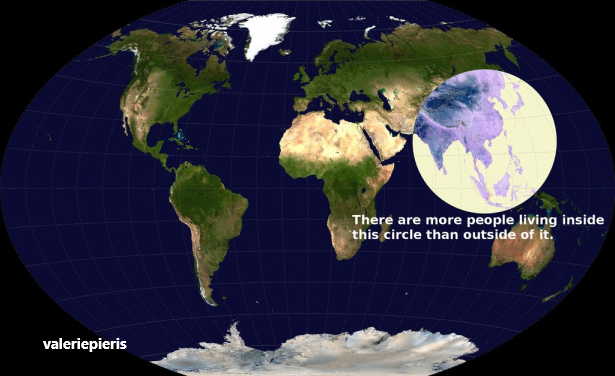State of Catastrophe - Announcing "Asian August"

Why Hello there, and welcome to our Thursday post, on its brave new time of…fuck, I guess Saturday. Don’t worry, this won’t be an ongoing thing. As Editor Jon and Textual Jon brought up in (Barely) Wednesday’s post, this has been a rough week for my productivity. A tooth-ache, several dentists visits, culminating in a root canal on Wednesday from which my jaw was still mildly overextended at 1 AM on Friday morning. Following that, I actually pre-cooked the next several weeks of posts, as I’ll be traveling, so Friday itself was filled with activity. And really, it makes a bit of sense: if Monday’s post was delayed two days, well, obviously I’m two days behind schedule.
However, I wanted to take a moment now and announce that this year, for the month of August, we’re doing a theme month, and I wanted to establish some ground rules and insight for it. (Which is why I’m reusing the “State of Catastrophe” title: this isn’t really a Quick Tip or anything, it’s more about the site as a technical entity.) We’re doing an “Asian” month. And I want to be clear why I’m putting those quotes there. Because these recipes are not going to be 100% authentic recipes. Because, as I have stated MANY times, I am a white guy from Washington.
Artists’s Rendering
And here’s the thing: most of the nations of Asia have incredibly long histories, with rich and complicated traditions, and…I’m just a comedian with a food blog. Even attempting to ASSERT that a recipe I found was ‘authentic’ could get me into trouble. I have seen legitimate chefs and historians get dragged by people for screwing up little details about Asian food history or make a recipe slightly different than the way someone’s grandmother does it (without ever questioning if their grandmother was doing it the ‘authentic’ way…), and I have seen hours long arguments unfold between Asians of the SAME CULTURE over details of their recipes and food history. And that’s actually really easy to understand, when you take a step back and think about it.
A Whole Lotta Love
As you may or may not know (or, more likely, know intellectually, but don’t really fully connect with), the majority of human beings alive are Asian. The majority of the human population lives in a circle whose starting point is placed in Burma.
Though this art vaguely implies to me that all of Eastern Asia is trapped in Superman’s Phantom Zone.
As such, it boggles the mind to think about the sheer scope of FOOD that is contained within that circle. We, as outsiders, are quick to label something “Chinese food” or “Indian food”, but think about this: Uttar Pradesh is the largest state in India, with roughly two-thirds the population of the entire United States…and it’s about 90% the size of Colorado.
A standing-room-only state.
Indonesia is the 4th largest country in the world…and I legitimately can’t tell you much about their food at all. And I’m a FOOD guy. I KNOW that I recently watched a show that informed me of what Indonesian street food is like, I just can’t remember which was which! (Seriously, I wrote a post about it. Indonesia was episode 4 of that series. It was predominantly focused on candy.) Add to that the REGIONS. Thailand does not cook like Indonesia, or Vietnam, or Cambodia, and I’m just in Southeast Asia! I haven’t added in Japan, China, India… Hell, if I want to get politically dangerous, China and Taiwan don’t have the same food culture, nor do China and Hong Kong.
As such, it is an INSANE task to attempt to encapsulate the entirety of Asian cuisine in a single month. Which is why I’m not.
What I AM Doing
This month is not going to be a 100% accurate recreation of Asian cooking techniques and recipes. What it will be is an introduction, as it were, to parts of Asian cuisine that I think the average American doesn’t know about, deserves to know more about, and/or is connected to some facet of my life. I am not presenting these recipes and their histories with the assertion that I am 100% correct, or that I know what’s best. I am simply celebrating a set of cuisines that me and my family quite enjoy, and putting a focus on these ideas, dishes, and cultures, to make them more understandable and palatable to my readers who might not be familiar with them.
In short, I’m translating, in a way. And since I haven’t been to these places, I’m translating from translations, which is always a fraught enterprise. Even relatively similar cultures and languages have their weird sticking points: Many Americans are disgusted by the yeast extract product Marmite, a favorite (or favourite, rather) in many British homes. It’s very salty and potent. But its use as a vitamin source for British soldiers, workers, and families during rationing (it has a high B12 content and folic acid, which helps treat anemia) made it a long-running staple food that is an acquired taste, but one many Brits love. By contrast, many in the UK can’t stand American Root Beer, feeling that the flavors in it (wintergreen, anise, etc) simply have no place in a beverage.
If you wanna watch Irish people be offended at American soda (except, weirdly, Barq’s) for 4 minutes, have I got a video for you.
And this is a trend you can see throughout the history of the site: while I’ve only done maybe a dozen or so posts of fully Asian dishes (Miso soup, Dan Dan Noodles, Khao Soi), I’ve done at least another dozen of Asian inspired, Asian-fusion, or otherwise “part-Asian” dishes. That’s 24 out of 178 catastrophes, almost 1 in 7.
So if you want perfectly executed, traditional Asian food, this is not the month for you. If you want facts, theories, and ideas for how to expand your horizons, and push further into learning about Asian cuisine, on the other hand, this is your time.








